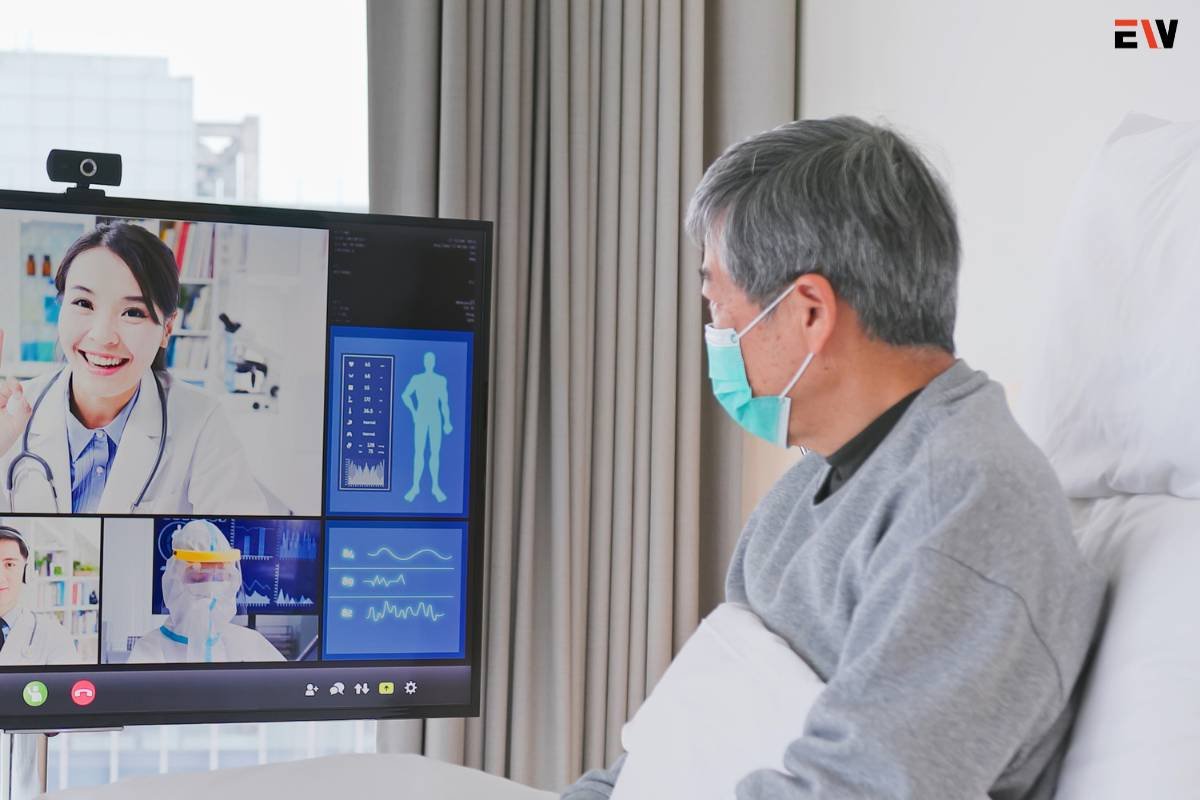SOURCE-X
In the complex world of healthcare, effective management plays a pivotal role in ensuring the delivery of high-quality and efficient services. “Healthcare Management Associates” (HMAs) emerge as key contributors, working behind the scenes to navigate the intricacies of healthcare organizations.
Understanding Healthcare Management Associates
1. Defining Healthcare Management Associates
Healthcare Management Associates are professionals who contribute to the effective administration and management of healthcare organizations. They bring a diverse set of skills to the table, combining healthcare expertise with managerial acumen to optimize operational processes and improve overall organizational performance.
2. Educational Background and Skills
Typically possessing degrees in healthcare administration, business management, or related fields, Healthcare Management Associates are equipped with a blend of clinical knowledge and managerial skills. Their skill set includes strategic planning, financial management, regulatory compliance, and interpersonal communication.
3. Roles and Responsibilities
HMAs assume multifaceted roles within healthcare organizations. They may be involved in strategic planning, financial management, quality improvement initiatives, regulatory compliance, and fostering collaborative relationships between different departments to ensure the overall success of the healthcare facility.
4. Collaboration with Healthcare Professionals
Healthcare Management Associates work collaboratively with healthcare professionals, including physicians, nurses, and administrative staff. Their ability to bridge the gap between clinical and administrative functions is instrumental in achieving cohesive and patient-centric care delivery.
Key Components of Healthcare Management Associates’ Impact
1. Operational Efficiency

HMAs focus on optimizing operational processes to enhance efficiency within healthcare organizations. This includes streamlining administrative workflows, implementing technology solutions, and identifying areas for process improvement.
2. Strategic Planning and Decision-Making
Strategic planning is a cornerstone of healthcare management. HMAs contribute by developing and implementing strategic initiatives that align with the organization’s mission and goals. Their decision-making prowess ensures that resources are allocated effectively to meet current and future healthcare demands.
3. Financial Management and Sustainability
Healthcare Management Associates are integral to maintaining the financial health of healthcare organizations. They oversee budgeting, financial planning, and resource allocation, ensuring sustainability while navigating the complexities of healthcare reimbursement and funding models.
4. Quality Improvement Initiatives
Ensuring the delivery of high-quality patient care is a top priority for HMAs. They spearhead quality improvement initiatives, implement evidence-based practices, and monitor key performance indicators to continually enhance the overall quality of healthcare services.
5. Regulatory Compliance and Risk Management
In the highly regulated healthcare industry, compliance with regulatory standards is paramount. HMAs navigate the complex landscape of healthcare regulations, ensuring that organizations adhere to guidelines while proactively managing and mitigating risks.
6. Interdisciplinary Collaboration
HMAs foster collaboration among diverse healthcare disciplines. By promoting effective communication and cooperation between clinical and administrative teams, they create a harmonious work environment that contributes to optimal patient outcomes.
7. Patient-Centric Care Delivery
Patient-centered care is a fundamental focus for Healthcare Management Associates. They work to align organizational strategies with the goal of providing patient-centric care, emphasizing accessibility, continuity, and personalized experiences for patients.
8. Technology Integration
The integration of technology in healthcare is a rapidly evolving aspect. HMAs play a pivotal role in implementing and leveraging technology solutions that enhance clinical workflows, facilitate data-driven decision-making, and improve overall healthcare delivery.
Challenges and Considerations in Healthcare Management
1. Changing Healthcare Landscape

The healthcare industry is continually evolving, with changes in regulations, reimbursement models, and technological advancements. HMAs must stay abreast of these changes and adapt strategies to navigate the evolving healthcare landscape.
2. Financial Pressures
Financial sustainability is a persistent challenge in healthcare. HMAs are tasked with finding cost-effective solutions while maintaining high-quality care. Balancing budgets, managing expenses, and optimizing revenue streams are ongoing considerations.
3. Workforce Management
The healthcare workforce is diverse and multifaceted. HMAs address challenges related to workforce management, including recruitment, retention, training, and creating a supportive work environment that fosters collaboration and professional development.
4. Data Security and Privacy
With the increasing reliance on electronic health records and data-driven decision-making, HMAs must prioritize data security and privacy. Adhering to regulatory requirements and implementing robust cybersecurity measures are critical considerations.
5. Patient Engagement and Satisfaction
Patient satisfaction is a key metric in healthcare. HMAs work on strategies to enhance patient engagement, improve communication, and ensure a positive overall experience for patients, all while balancing the demands of clinical efficiency.
6. Community and Stakeholder Relations
Building positive relationships with the community and stakeholders is crucial for healthcare organizations. HMAs engage in community outreach, foster partnerships, and maintain transparent communication to garner support and trust.
7. Integration of Emerging Technologies
The integration of emerging technologies, such as telemedicine and artificial intelligence, presents both opportunities and challenges. HMAs navigate the adoption of these technologies, ensuring they align with organizational goals and enhance the delivery of healthcare services.
8. Evolving Healthcare Policies
Healthcare policies undergo continuous changes at local, national, and international levels. HMAs must stay informed about policy developments, interpret their impact on organizational operations, and adapt strategies to remain compliant.
Future Trends in Healthcare Management
1. Telehealth and Remote Care

The rise of telehealth and remote care services is likely to continue. HMAs will play a role in integrating these services, ensuring regulatory compliance, and optimizing their use to improve access to healthcare.
2. Population Health Management
Population health management focuses on improving the health outcomes of entire populations. HMAs will increasingly emphasize preventive care, health promotion, and strategies to address social determinants of health.
3. Data Analytics for Informed Decision-Making
The use of data analytics is poised to grow. HMAs will leverage advanced analytics to inform decision-making, enhance clinical workflows, and identify opportunities for continuous improvement in healthcare delivery.
4. Patient Empowerment and Shared Decision-Making
Patient empowerment and shared decision-making will become central to healthcare. HMAs will work towards creating environments that empower patients with information, engage them in decision-making, and prioritize personalized care plans.
5. Value-Based Care Models
Shifting towards value-based care models will be a trend in healthcare. HMAs will focus on aligning incentives, measuring outcomes, and fostering collaboration across the healthcare continuum to deliver value-driven care.
6. Interoperability of Health Information Systems
Achieving interoperability among health information systems is a critical goal. HMAs will work towards seamless data exchange between healthcare entities, ensuring continuity of care and enhancing the overall patient experience.
7. Patient-Centric Technologies
The integration of patient-centric technologies, such as wearable devices and mobile applications, will continue to grow. HMAs will navigate the adoption of these technologies to enhance patient engagement and improve health monitoring.
8. Global Health Collaboration
Global health collaboration and information exchange will become increasingly important. HMAs will play a role in fostering international partnerships, sharing best practices, and addressing global health challenges collaboratively.
Conclusion
Healthcare Management Associates stand at the intersection of healthcare expertise and managerial acumen, shaping the future of healthcare delivery. Their multifaceted roles in strategic planning, financial management, quality improvement, and interdisciplinary collaboration contribute to the operational excellence of healthcare organizations. As the healthcare landscape evolves, HMAs will continue to play a pivotal role in navigating challenges, embracing technological advancements, and championing patient-centric care.
Unlocking the Power of Rest: Essential Sleep Hygiene Tips for a Better Night’s Sleep
In the hustle and bustle of our modern lives, the importance of a good night’s sleep cannot be overstated. Sleep is a fundamental aspect of our overall well-being, influencing our physical health, mental clarity, and emotional resilience.










